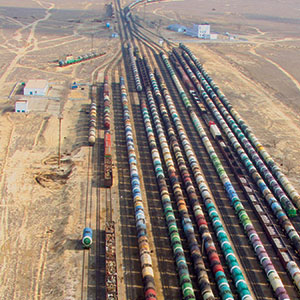China's Belt and Road Initiative
Military and Security Implications
China’s Belt and Road Initiative (BRI), launched by President Xi Jinping in 2013, promises to spend over $1 trillion on numerous projects across Eurasia. With BRI, China has taken the lead in promoting regional infrastructure building as a means to boost economic development, growth, and stability in its wider periphery.
The initiative officially covers most of the Eurasian continent, as well as parts of the Middle East and Eastern Africa, and includes over 60 countries. The security situation in many parts of this region can be volatile due to ethnic and religious violence, territorial disputes, and destabilizing spillovers from conflicts in Syria, Afghanistan, and Yemen, among other countries. As Chinese businesses, workers, and government officials become involved in more projects across this region, China’s citizens, interests, and assets will be put at greater risk, prompting the leadership in Beijing to re-examine its security obligations and relationships abroad.
NBR has commenced a 24-month project designed to examine the impact of BRI on China’s military and security interests in the region covered by the initiative. The project will explore how China’s expanding overseas interests are likely to affect its military and security calculations. It will in turn assess the impact on U.S. foreign policy and national security interests. Leading experts in the field will discuss and analyze these issues through a series of workshops and events convened by NBR with the support of the Daniel Morgan Graduate School (DMGS). The project will yield a number of publications, culminating in a major report detailing its findings in late 2019.
NBR would like to thank the Daniel Morgan Graduate School of National Security for their support of this project.

Contact
For more information, please contact [email protected].







